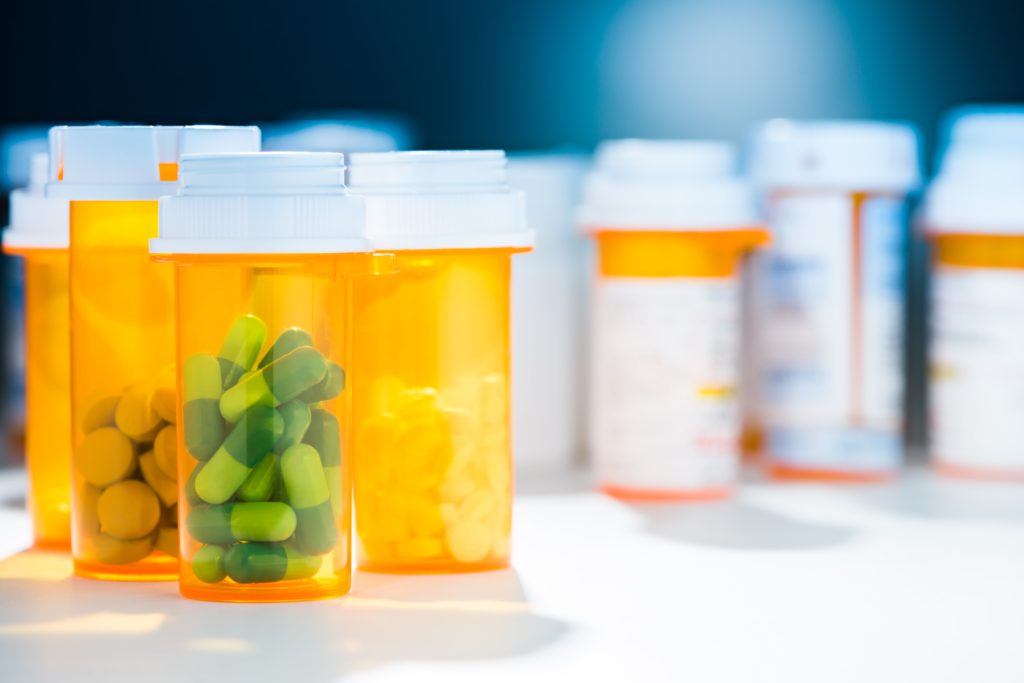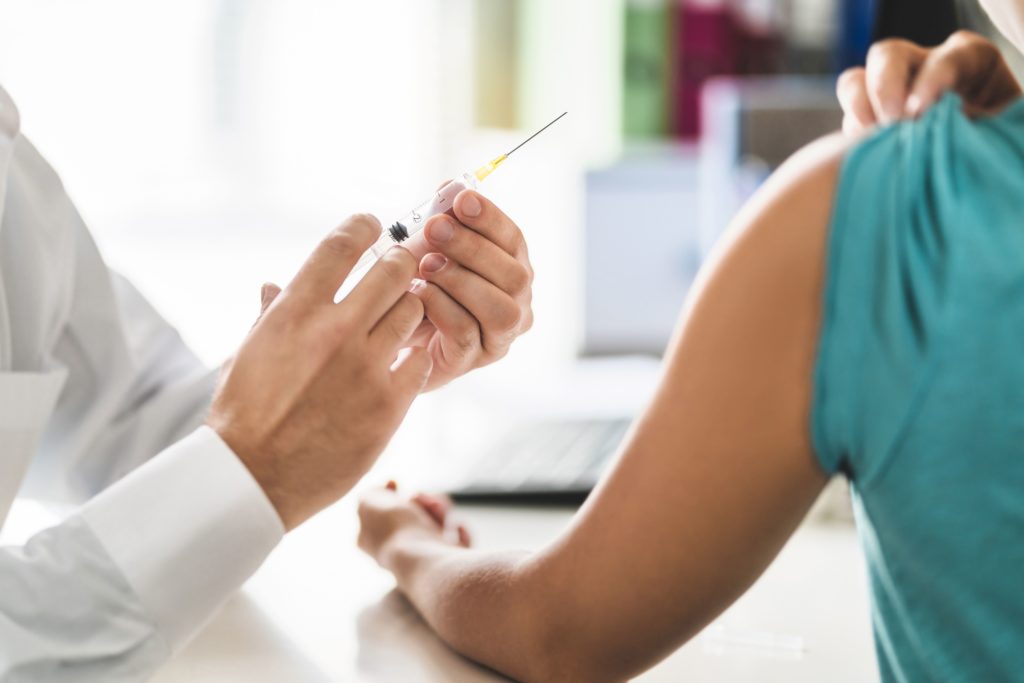MAT Program in Knoxville, TN
Whether rehab is for you or a loved one, taking the first step on the road to recovery can be daunting. It may be difficult to think of leaving your old way of life behind. You likely have many questions and concerns. One concern is how to cope with cravings and the uncomfortable withdrawal symptoms caused by the cessation of drugs or alcohol.
Our medication-assisted treatment (MAT) program in Knoxville, TN, can ease your concerns. Medical detox can lessen cravings and make the initial stages of recovery more comfortable.
Continuing with medication-assisted treatment after detox can help you focus on other aspects of recovery and help prevent relapse. At Tennessee Valley Recovery, we are committed to getting you through the entire process safely and successfully.
What is Medication-Assisted Treatment?
Medication-assisted treatment, also called MAT, is a type of addiction treatment program that combines both medication and behavioral therapy to help people find more complete healing from their addiction. It is a “whole patient” approach to addiction treatment, as it addresses both the mental and physical effects that substance abuse has on people.
This approach is most often utilized for people with either an alcohol or opioid addiction, as both of these substances have high rates of relapse due to their highly addictive nature. If someone is concerned they may have an addiction, they can take our addiction assessment to see if they would need MAT. Our MAT program in Knoxville treats opioid and alcohol addiction.

How Does Medication-Assisted Treatment Work?
Our team works closely with clients during medication-assisted treatment programs in Tennessee to assess their needs. Our physician will determine which FDA-approved medications are appropriate for a patient during opioid and alcohol addiction treatment. These medications help normalize brain chemistry by reducing withdrawal symptoms and helping to control physical cravings. Our Tennessee MAT programs are under medical supervision and work in combination with therapy.
Therefore, our clients receive behavioral therapy alongside medication-assisted treatment to build and strengthen their coping skills. Since we recognize that addiction is a disorder that affects people both physically and mentally, we know that recovery starts with a systematic approach. During our Knoxville MAT services, we help our clients tackle physical symptoms while developing coping tools for a lasting recovery.

Medication-Assisted Treatment for Opioid Addiction
The three medications currently approved for use in the opioid MAT program are methadone, naltrexone, and buprenorphine. These medications all work to help people addicted to opioids, like fentanyl and heroin, because they interact with the same area of the brain that the drugs do. This approach tricks your brain into thinking that you are still using opioids, which makes it significantly easier to stay clean and avoid future drug use.
Each medication has slightly different effects on users, giving clients various options to suit their treatment needs. At our MAT program in Knoxville, we use the following medications for opioid use disorders:
Methadone
Methadone works to reduce cravings for opioids and withdrawal symptoms and also prevents users from getting high if they do use opioids. It is available in liquid, powder, and pill form and for daily use for at least twelve months, with some individuals requiring longer use to remain opioid-free.
Naltrexone
Naltrexone blocks the euphoric and sedative effects that opioids provide, which prevents the user from getting high if they do use opioids. It can be taken daily in pill form or as an extended-release injectable administered monthly. Naltrexone is typically for at least twelve weeks.
Buprenorphine
This medication produces an effect similar to low-dosage uses of opioids, causing the body to feel as if it has used them. Hence, withdrawal symptoms and cravings for opioids decrease. The amount of time a person uses buprenorphine depends on their specific needs, and the length of treatment may be long-term.

Medication-Assisted Treatment for Alcohol Addiction
For those dealing with severe alcohol addiction, acamprosate, naltrexone, and disulfiram are the most commonly used medications in alcohol MAT. Much like opioid MAT medications, alcohol MAT medications each have slightly different effects on users, giving you the option to choose one that best suits your needs.
Acamprosate
Before someone can take this medication, they must have abstained from drinking for at least five days. Taken in pill form, Acamprosate works to prevent cravings and support long-term sobriety. However, it does not work if someone continues to drink while using it or is currently abusing prescription medications. Their doctor will determine how long a person needs to take this medication.
Naltrexone
Naltrexone helps to prevent users from getting drunk if they do drink. This helps users to stay sober by taking away the “reward” response they used to get from drinking. Most people take this medication for at least twelve weeks.
Disulfiram
This medication requires users to be detoxed from alcohol before they can take it. It does not help reduce cravings for alcohol. However, it does help prevent relapse by making users have an adverse physical reaction if they consume even a tiny amount of alcohol. This reaction can include nausea, sweating, vomiting, flushing, headache, chest pains, and difficulty breathing.
Typically administered in pill form, this drug is for at least three months, with most people using it for twelve months or more.
A New Day Begins with Tennessee Valley Recovery
Visit the admissions page at Tennessee Valley Recovery today to learn more about our treatment plans.
Therapy and Medication-Assisted Treatment
Therapy is an equally important component for success in our MAT program in Knoxville. It allows clients to dig deeper into the cause of their addiction, identifying the habits and behaviors that may have contributed to their condition. It also helps to treat any underlying mental health issues an individual may be experiencing, which can be a significant contributor to relapse.
Therapy helps people to avoid drug use triggers, develop healthy coping mechanisms, and learn more about themselves. Several types of therapy are available for you, including cognitive-behavioral therapy, contingency management, group therapy, family therapy, and more.

Benefits of Medication-Assisted Treatment in Knoxville, TN
Medication-assisted treatment is a whole-person approach to addiction care. Because this type of treatment takes into account the physical and psychological components of addiction, our MAT program in Knoxville for opioid and alcohol addictions offers many benefits for those entering treatment. These include:
Effectiveness
The most significant benefit of our Tennessee MAT programs is just how effective they are at helping people overcome an addiction to opioids or alcohol. Research has shown that MAT is more effective than medication or therapy alone because of its focus on treating every aspect of a person’s addiction rather than just focusing on one area.
Affordable
For many people, the fear of the cost of addiction treatment is what prevents them from getting help. However, with recent changes in health insurance regulations, many plans now cover at least part of the MAT programs in Tennessee. Therefore, medication-assisted treatment programs in Tennessee are more affordable than some other addiction treatment options.
Freedom
After you have completed your stay at the facility, this doesn’t mean that the support MAT provides is gone. You can continue to use MAT medications to support your recovery for as long as you need them. This comes without having to commit to an indefinite inpatient stay. This allows you to get back to your everyday life with less fear of relapse.
Integration Into Other Programs
If your addiction is very severe, integrating MAT into other, more intensive addiction treatment programs is beneficial. Plus, this approach is part of more holistic recovery programs. Holistic rehab programs include alternative therapies to help you get the best of both worlds when it comes to your recovery.
It Can Make Transitioning Home Easier
One of the more challenging aspects of addiction recovery is transitioning back to your regular home life after treatment. Many people fear losing the support of their addiction treatment program once they return to their everyday lives. With a MAT program, you can be confident that your treatment is still available for as long as needed. Going back home is a happier, more positive event.

Medication-Assisted Treatment in Knoxville, TN
Overcoming an addiction to opioids or alcohol can be an overwhelming decision to make, but you don’t have to do it alone. Our MAT program in Knoxville, TN, offers a range of medication and therapy options that help us build a custom treatment plan that guides you to a successful recovery. Our team is dedicated to your continued support even after you leave our facility.
Contact us today to discuss how Knoxville MAT services help you find stability and sobriety to return to living a life you love.
Our Services
A New Day Begins with Tennessee Valley Recovery
It is time to put your health and wellbeing first. Call us right now to learn more about how we can help you put a stop to your active addiction and begin living a life of recovery.
ContactLatest Blogs
Addiction Recovery News & Articles

Talk Therapy For Addiction and Mental Health
Talk therapy, or psychotherapy, involves discussions be …

Alcohol and Depression: Exploring the Connection
A direct connection between alcohol and depression exis …
